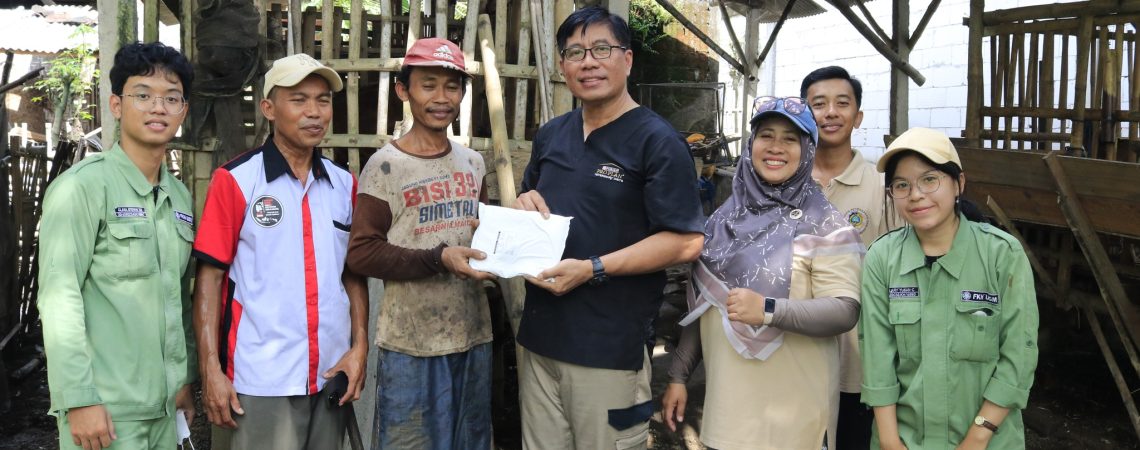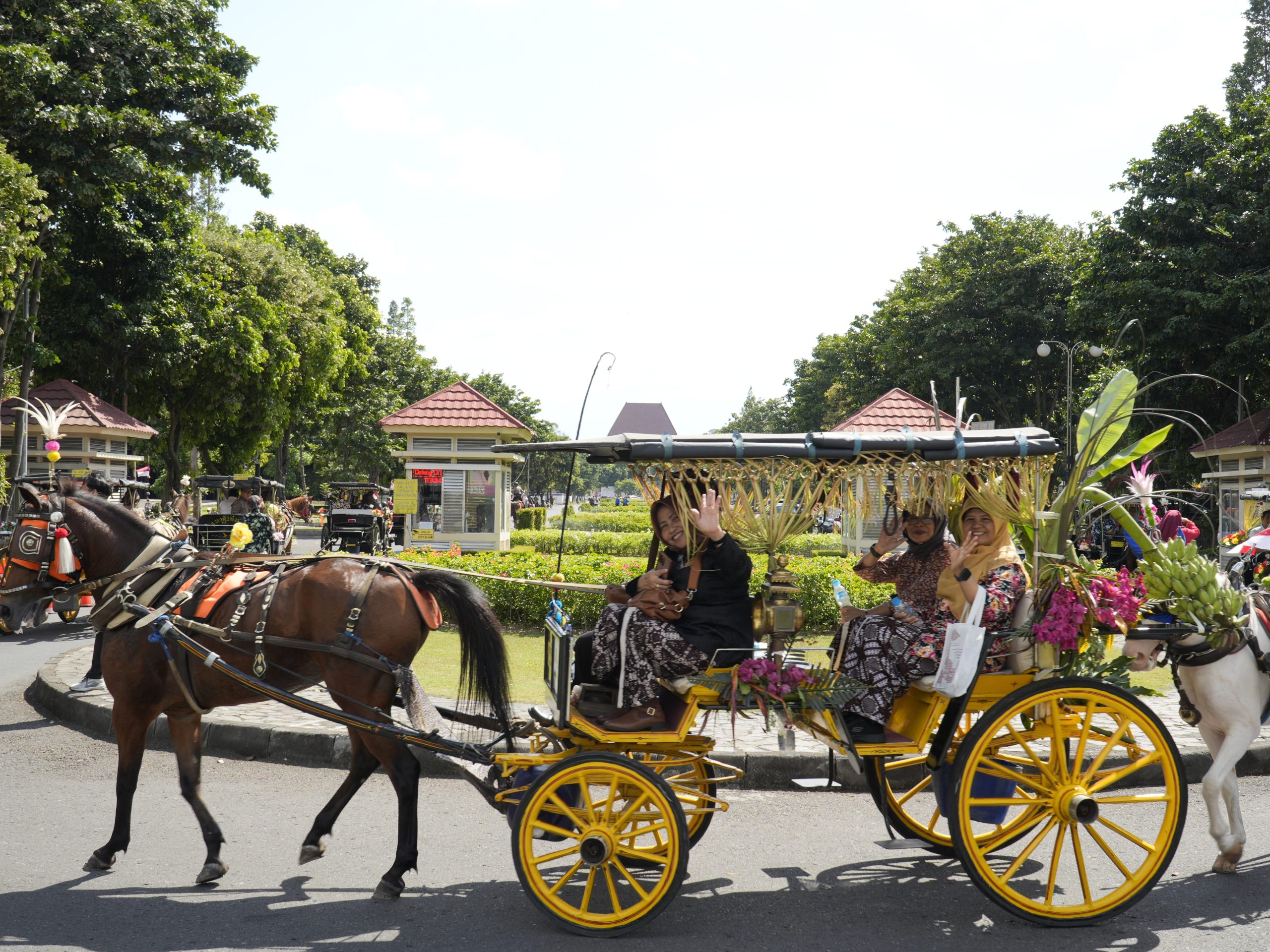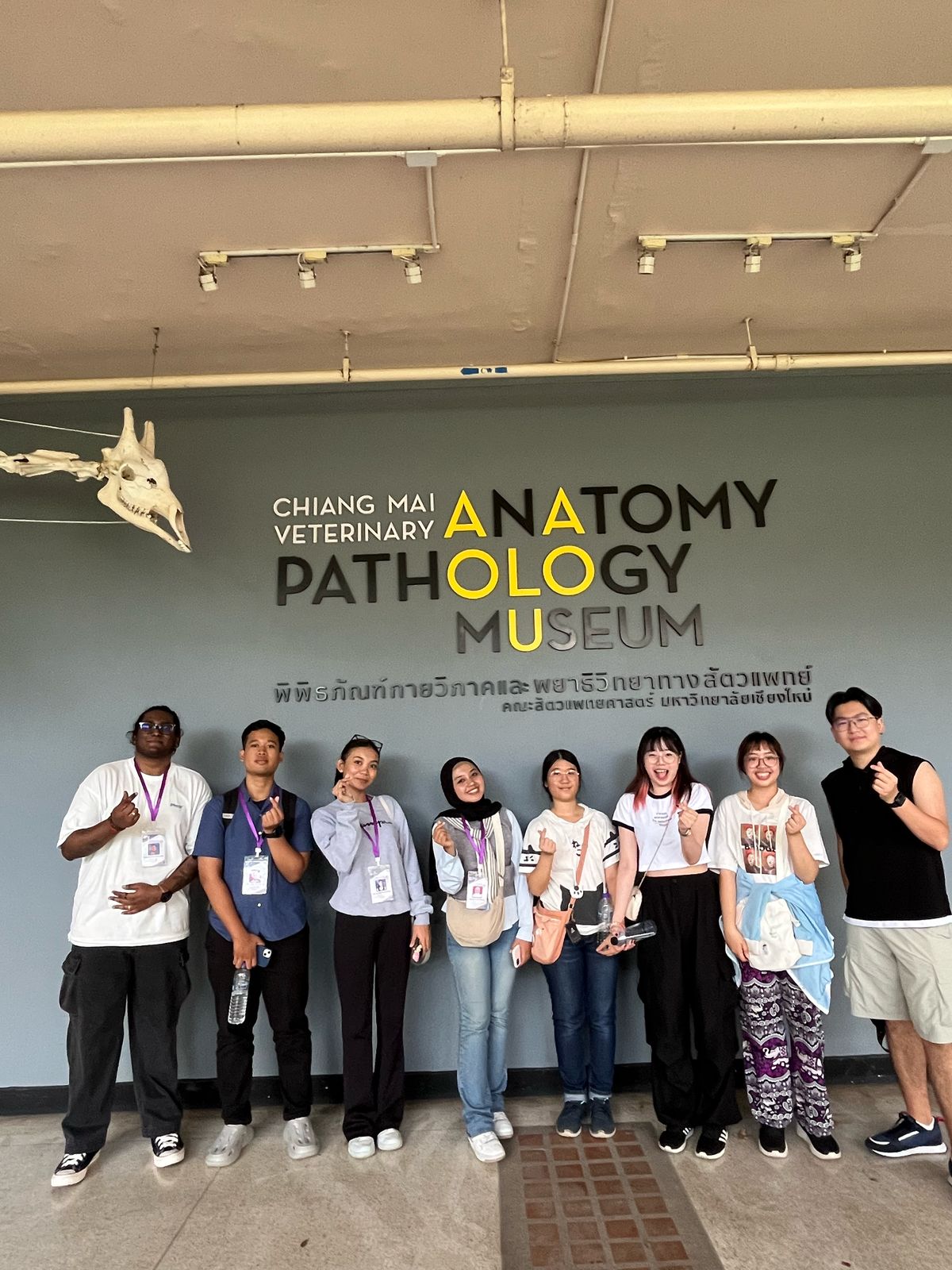The Veterinary Professional Education Study Program (VPE) of the Faculty of Veterinary Medicine (FVM) Universitas Gadjah Mada (UGM) Yogyakarta held a community service on 13-14 June 2025 in Tuluagung Regency, East Java Province, Indonesia. On this occasion, FVM UGM collaborated with the Tulungagung Animal Husbandry and Animal Health Service (Disnakeswan). This event carried the theme “Efforts to Improve Cattle and Goat Livestock Based on Smart Village in the Tulungagung Regency Livestock Groups”.
This Community Service Activity aims to provide education to livestock farmers regarding the challenges faced in the current era of globalization, which requires people to be technology literate. This activity supports the younger generation of livestock farmers to utilize technology in livestock management. This activity was attended by around 50 heads of livestock groups.
This activity was divided into 2 sessions, namely presentation or material sharing sessions, and workshops. The material session was delivered by one of the professors in the field of Internal Medicine and Pharmacology FVM UGM, namely Prof. Dr. drh. Ida Tjahajati, M.P. and Prof. Dr. drh. Agustina Dwi Wijayanti, M.P. While the workshop session was practiced directly by Prof. drh. Agung Budiyanto, MP., Ph.D who is the Vice Dean 1 of FVM UGM and a professor in the field of Animal Reproduction. This activity was carried out in the yard of the KUA, Kalidawir District, Tulungagung Regency.
Reported by the Central Statistics Agency, in 2024 Tulungagung Regency produced 10,734,000 kg of beef, 677,775 kg of dairy beef, and 49,635,325 kg of milk. The abundant supply of meat and milk has a significant role in food security, especially in Indonesia. As conveyed by Prof. Ida, “Goat and cattle farming have a strategic role in providing animal food, economic resources, and national food security. However, livestock productivity is greatly influenced by animal health. Both infectious and non-infectious diseases can be a serious threat to livestock farmers”. In her presentation, she explained how to recognize symptoms of disease in livestock, how to carry out first aid, and how to prevent the diseases appropriately.
Furthermore, the participants also received material on livestock treatment and the use of herbs. Prof. Agustina explained herbal medicine recipes that can be used by farmers for several diseases that attack livestock, but are not too severe, for example, bloating can use ginger, turmeric, massage oil/warming balm. This knowledge helps farmers as a first aid measure for livestock.
For the animal reproductive health examination workshop session, Prof. Agung used a young female cow to be examined for pregnancy. This examination was carried out using ultrasound (USG) specifically for livestock. After that, the FVM UGM team also provided medicine and vitamins for residents’ livestock.
For the next 2 years, the FVM UGM team will continue to provide assistance to livestock groups fostered by the Animal Health Service. It is also planned to develop a Smart Village for livestock management involving students from across faculties at UGM in the thematic Community Service Program. This activity supports several values of the Sustainable Development Goals (SDGs), namely point 2 Zero Hunger, point 3 Health and Well-being, point 4 Quality Education, point 12 Responsible Production and Consumption, point 15 Life on Land, and point 17 Partnership for the goals.




